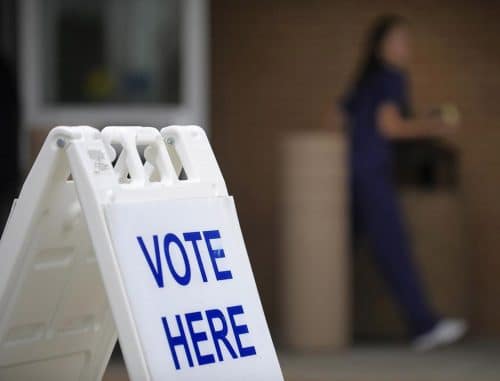The Americanism of the Electoral College
COMMENTARY

There’s something particularly ironic about a presidential candidate standing in the rural state of Mississippi and calling for abolishment of the Electoral College. Yet, that’s exactly what Senator Elizabeth Warren, D-Mass., did on the campaign trail. She’s not alone. Other major Democratic candidates have piled on so that it is now a major talking point for the Left. Amid all of the noise, they have lost what used to be celebrated: diversity.
Indeed, if the Electoral College could be summed up in one word it is undoubtedly diversity. The founders recognized early on that our nation was made up of varied regions and that in a simple majority vote less populated states would lose all voice. While some of the framers championed direct democracy, others feared a world in which 51 percent could crush the other 49 percent. James Madison brilliantly sketched out the Electoral College as a compromise. Currently, each state gets a number of electors that is identical to its number of representatives and senators in Congress. The District of Columbia gets three electors. The institution survives on its original premise: a presidential candidate must win in diverse parts of the country, not just pockets of it.
To date, there have been a handful of occasions in which the loser of the popular vote went on to win the Electoral College. This can occur when the victor wins by small margins in the required configuration of states while the loser wins by large margins in the remaining states. However, none of these cases show any discrepancy in the institution itself. The most recent were George W. Bush and Donald Trump. Anyone can look at the maps for the 2000 and 2016 elections to see that both Bush and Trump won a much more diverse part of the country than their challengers.
Perhaps this is another redeeming value of the Electoral College. The institution really swings into action when the country is politically divided; ensuring that a winning candidate cannot just campaign in more densely populated areas. Instead, they must prove an ability to get votes in varied regions. In the election of 1860, Abraham Lincoln lost the popular vote. But he won the Electoral College by taking nearly all the Northern states as well as California and Oregon on the West Coast. The electoral system played in his favor. Arguably, pro-slavery politicians could do the math and it may have played a role in their decision to just quit the entire nation.
Still, calls to eliminate the electoral system continue from time to time and the upcoming presidential election has only become a platform for this reckless idea. Recently, Colorado joined about eleven other states with legislation that would allocate all of their electoral votes to whoever wins the national popular vote. Such legislation would only take effect if the law is passed by states carrying at least 270 electoral votes. Nonetheless, they have joined in a political suicide pact. No presidential candidate would ever have to set foot in many of these areas if there was a one-person, one-vote system. Of course, some adjustments to the institution may be helpful and would not require a constitutional amendment. For example, while virtually every state allocates its electors on a winner-take-all basis, Maine and Nebraska assigns one to each congressional district and two for the statewide winner. Such a tweak still preserves the inherent value of the Electoral College and makes it even more proportional.
But let there be no mistake about it. If the talking points ever gain traction and opponents of the Electoral College get their way, American representative democracy will be dumped in favor of the one-person, one-vote principle. All but a handful of states will feel left out and this could divide the country more than ever.
























